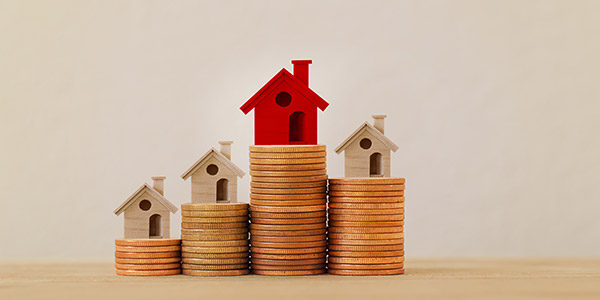Homeowners
What Is Home Equity?
January 27, 2022
When it comes to home loans, you've probably heard the term "equity" on more than a few occasions, and you might have just as many questions. Fortunately, we have plenty of answers. Since it affects your borrowing power in so many ways, let's review some essential points about equity.
Home Equity Defined
Playing a vital role in your loan qualification, your home equity is an asset. It is, quite literally, the part of your property that you truly own. (While your lender may have funded your home, they technically do not own your home; The home is considered collateral for the loan.) As time passes, your home equity can increase or decrease depending on the market value of the property and how much of the loan balance is paid or unpaid.
How Do You Calculate Your Home Equity?
For those needing a refresher on calculating equity, it's the difference between your loan's current balance and your property's appraised value. So, if your loan balance is $140,000 and your property value is $400,000, your equity would be $260,000. Lenders can use another equity-related equation to determine your loan-to-value (LTV) ratio, which can impact your loan terms, APR, and more. Your LTV is your loan balance divided by your property's appraised value expressed as a percentage. Based on the figures above, your LTV would be 35%. Home mortgage lenders generally desire 20% equity or an LTV ratio of 80% or less for a refinance but may require greater equity.
How Can You Use Equity?
Think of equity as an asset with buying power that can be accessed and put toward the purchase of a home or borrowed against as a cash-out refinance or a home equity line of credit (HELOC). Individuals who have owned their homes longer can use the accumulated equity in their homes to help fund their retirement years through a reverse mortgage.
How Can You Build Equity?
Building your home equity comes down to increasing your property value and/or decreasing your debt. In the case of the former, you can add to your home's value with some key improvements such as a new roof, HVAC unit, kitchen and bathroom makeovers, landscaping enhancements, smart home devices, etc. It's also important to keep up with basic routine maintenance and repairs to make the home more attractive and functional to potential buyers. If you live in an area with increased redevelopment or job opportunities, your home may appreciate on its own due to these market conditions.
When it comes to reducing debt, there are obvious solutions and not-so-obvious ones. For instance, just forging ahead and making your monthly mortgage payments will slowly reduce your interest payments and increase your principal payments, thus reducing your debt and building equity. However, making extra principal payments can lower your mortgage debt even faster.
Swapping a 30-year fixed-rate or adjustable-rate mortgage for a 15-year fixed-rate mortgage will likely increase your monthly payments but you'll pay less in interest over the life of the loan. Theoretically, this will result in less mortgage debt and more home equity over a shorter loan period.
How Can We Help You?
If you're ready to make the power of your home's equity work for you, contact New American Funding today. We have a variety of home loan options to address your unique financial situation and help you stay on track with your life goals.





 Smart Moves Start Here.
Smart Moves Start Here.